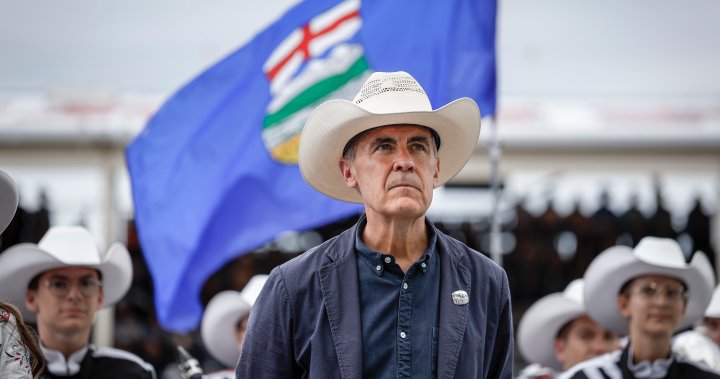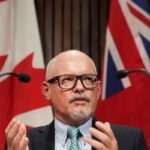In a stark assessment that has sent ripples through Canada’s economic circles, former Bank of Canada governor Mark Carney cautioned that the nation must prepare for significant trade disruptions should Donald Trump return to the White House. Speaking with unmistakable urgency at a recent economic forum in Toronto, Carney outlined how Trump’s potential second administration could fundamentally reshape North America’s economic landscape.
“There’s no ambiguity about the objectives,” Carney stated, his voice carrying the weight of someone who has navigated global economic crises before. “Trump has made it clear that addressing trade imbalances would be a cornerstone policy, with Canada squarely in his crosshairs.”
The warning comes as Canadian officials quietly develop contingency plans for a potential Trump victory in November. According to senior government sources, Ottawa’s strategy rooms are gaming out scenarios that once seemed unthinkable, including the possibility of America withdrawing from the Canada-United States-Mexico Agreement (CUSMA) that replaced NAFTA during Trump’s first term.
Carney, who also served as governor of the Bank of England before becoming a UN special envoy on climate action and finance, pointed to Trump’s consistent rhetoric on trade deficits. “His focus has never wavered,” Carney explained. “Canada’s trade surplus with the United States, particularly in key sectors like manufacturing and natural resources, makes us vulnerable to targeted action.”
The numbers underscore this vulnerability. Canada exported approximately $489 billion in goods to the U.S. in 2023, while importing $368 billion – creating a trade surplus that has repeatedly drawn Trump’s criticism. Economic analyses from the CO24 Business desk indicate that any disruption to this trade relationship could potentially slash Canadian GDP by up to 2.5 percent within a year.
Industry experts note that certain sectors face particularly acute risk. “Automotive manufacturing, lumber, and energy exports would likely face immediate pressure under a Trump administration,” explained Dr. Elaine Thompson, trade economist at the University of Toronto. “These industries represent the backbone of Canada‘s export economy and employ hundreds of thousands of workers.”
Carney’s warning extends beyond traditional trade barriers. He highlighted how modern trade disputes can be waged through regulatory changes, procurement policies, and even security provisions. “The tools available to disrupt trade have multiplied,” Carney noted. “Tariffs are just the beginning.”
What makes Carney’s intervention particularly noteworthy is his reputation for measured commentary. As a figure who has carefully maintained relationships across the political spectrum, his blunt assessment suggests genuine concern among economic policymakers about Canada’s trade vulnerability.
Deputy Prime Minister Chrystia Freeland, responding to questions about Carney’s comments, emphasized Canada’s trade diplomacy efforts. “We’ve been actively strengthening relationships at the state and local level across America,” Freeland stated. “This administration understands that nine million American jobs depend on trade with Canada.”
However, political analysts question whether such rational economic arguments would resonate with a potential Trump administration driven more by political symbolism than traditional economic calculations.
Carney advised Canadian businesses to diversify their export markets while simultaneously deepening their American presence. “Canadian companies should consider establishing or expanding U.S. operations,” he suggested. “Having a physical footprint south of the border provides both political and economic insurance.”
The former central banker also urged the federal government to strengthen coordinated response mechanisms with provinces and key industry sectors, noting that “Canada’s best defense will be unified action.”
As Canadian officials prepare for an uncertain trade future, the fundamental question remains: can a nation that conducts nearly 75% of its exports with a single partner effectively insulate itself from the political whims of that market? Or is it time for Canada to fundamentally rethink its position in the global economic order?
























